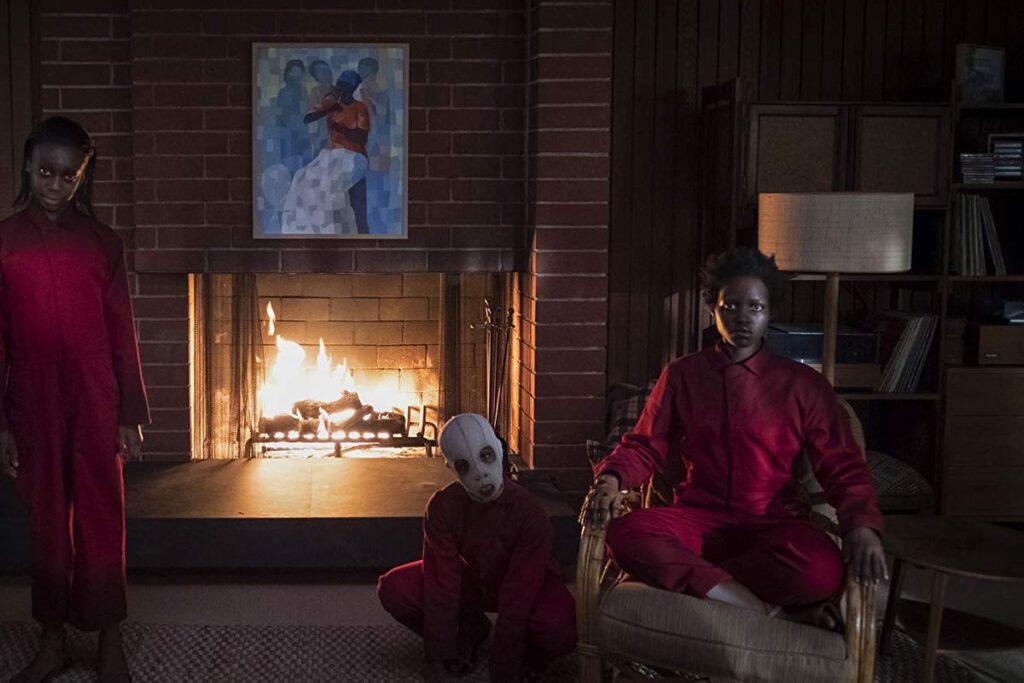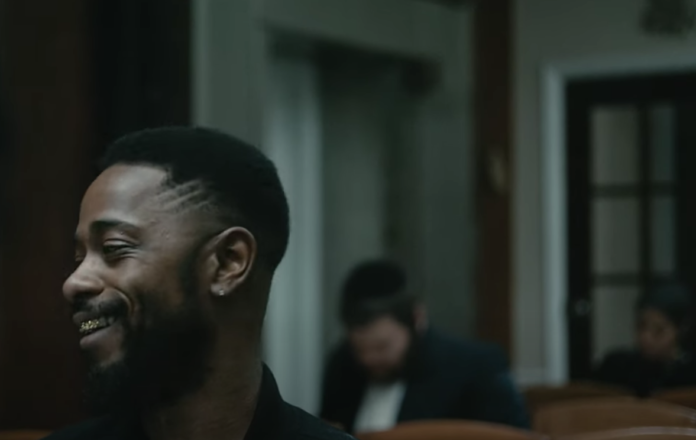Best-case scenario, the show is just a show that makes people aware. It’s not going to do the transformative work we’ve been talking about.
– Donald Glover, “Donald Glover Can’t Save You,” The New Yorker (2018)
Despite its growing relevance, Atlanta is not yet big enough (think Euphoria or Game of Thrones-level) to boast many casual viewers. And that’s a good thing — the people who currently speak on Atlanta don’t flood the internet with awful takes and vain character obsessions. There are plenty of writers and viewers who see the compressed zip folders of data in Atlanta‘s strangest scenes, unzip them, and tell the full stories with all the unlocked files. After all, Donald Glover views storytelling as the greatest vehicle of information humans have.
But as it grows in scope and clout, selfish expectations may distract from the magic of Atlanta‘s Black bystander view of the world’s chaos.
Whiteface. Mysterious Jewish American social capital. Liam Neeson. These are just some of the spectacles Atlanta conjures that most producers wouldn’t touch with a stick and no other show could present so coldly and unflinchingly.
You may oh so briefly think this can’t be real after one of these uncomfortable scenes, but Atlanta coolly convinces you yes, this is happening. That this reserved group of Black people and aloof camera are seeing things clearer than anyone — life really is this weird, and there’s not a whole lot to be done about it.
And that’s why it’s so fucking funny.
Atlanta‘s audience is not trigger happy with the term “problematic” and it navigates the show’s ambiguity well. But Season 3 is full of uniquely Black American conundrums that even Black people find difficult to sort through. As ever, the series is largely uninterested in taking stances or telling viewers what to think. So, how should we process this season’s information? With such loaded portrayals including Black social justice scammers and a jollof rice gentrifier, would it be lazy or righteous if Atlanta’s viewers limited their feedback to, “Damn, that’s crazy”?
***
Atlanta, like any mainstream American artwork, is partly made with White people in mind. Donald Glover groaned about that fact in Tad Friend’s excellently-aged profile of him in 2018. But Atlanta is not a crowd-pleaser that feels pressured to keep smiling. Atlanta lets its White viewers into the freak show without a guided tour. Often, the characters who look like them are the biggest freaks in a Jordan-Peele-Us sort of way.

“The Big Payback” is up there among Atlanta’s most unsettling detours. When Marshall, a White man, learns Black Americans are successfully suing White Americans whose direct ancestors enslaved theirs, Atlanta seems to be making a reparations pitch. But when we see Sheniqua, a Black woman, confront Marshall about his family’s enslavement of her ancestors, Atlanta drops back into its happy place: watching the chaos unfold.
The episode is alarming and provocative. But despite its debate-worthy elements, the main takeaway from “The Big Payback” isn’t necessarily “Where’s the money?” What the episode repeats in increasing volume is, “This is everyone’s mess.” And as we watch the one-off characters attempt to clean, we quickly realize it’s impossible to make America spotless.
We know Marshall doesn’t have $3 million. We also know somebody owes Sheniqua something. So as we observe this lady relentlessly haunt this man for money he doesn’t have in broad daylight, it becomes more than a criticism of passive White liberals. More than a bold call for justice.
It’s absurdity. It’s complete madness. It is the dry, damning laugh we’ve come to expect from Atlanta. You are not meant to get more serious about racism and poverty after watching “The Big Payback.” Just more honest, less academic, and as confused as ever.
With Glover popping back out into the world to talk shit, bolster his film résumé, and tease new additions to his pop-cult discography, Atlanta, like its creator, is no longer a niche experience. Like jazz, hip-hop (new jazz!), or the reclaimed version of “nigga,” Atlanta is going from Black cultural innovation to mainstream (i.e. White) fascination. And in the mainstream domain, a conversation about an episode like “The Big Payback” looks much different than it does among the show’s core viewers.
That isn’t to say White viewers fabricate their takeaways from Atlanta‘s heavier episodes. But no review of the show is complete without awareness of its core worldview: racism screwed reality and Black people are meant to survive it, not fix it. That includes the brilliant Black people who make the show.
Cute Asian chick emotionally lynched by a self-righteous White mob? As Alfred told Darius, “not our problem.” They left the party unscathed.
Bailing on a show after getting paid and watching the club promoter beat a Dutch man in blackface? Not Earn or Paper Boi’s problem. They got the bag.
Watching obnoxious young British men play catch with a baby after failing to accost Paper Boi? Who cares? Thank God he didn’t have to shuck and jive!
Would it be lazy or righteous if Atlanta’s viewers limited their feedback to, “Damn, that’s crazy”?
Being frustrated about the lack of “action,” explanation, recurring guest stars, or continuity will keep you from the show’s best laughs and dense kernels of wisdom. And often, these moments are not quotable or grandiose. It’s Earn making it onto the plane, Al passing Darius the blunt, and a father receiving his son’s Family Picture Day photos. Sometimes it’s just realizing a character has cleaner outfits now, or they ask a question you wouldn’t expect them to ask.
Atlanta will continue to impress. The series is likely to see its biggest live audience for its fourth and final season set to debut later this year. But no matter what images or talking points escape the series into the greater algorithm, try to remember what Atlanta is here to do. Inform? Yes. Entertain? Sure, but only as a function of informing. Change us? Save us? Ha!
